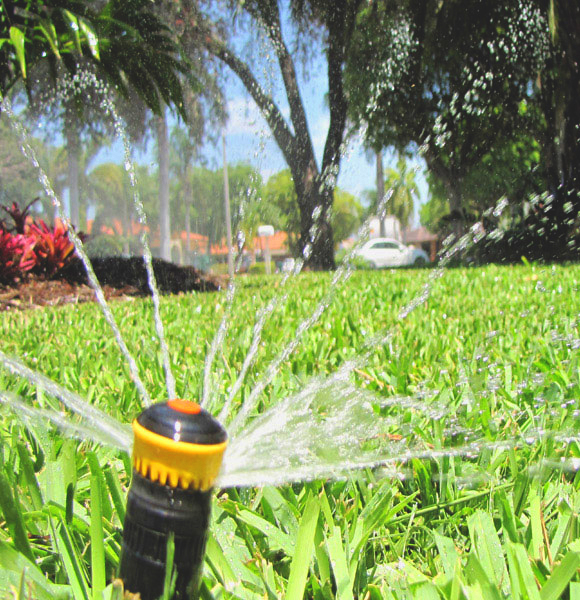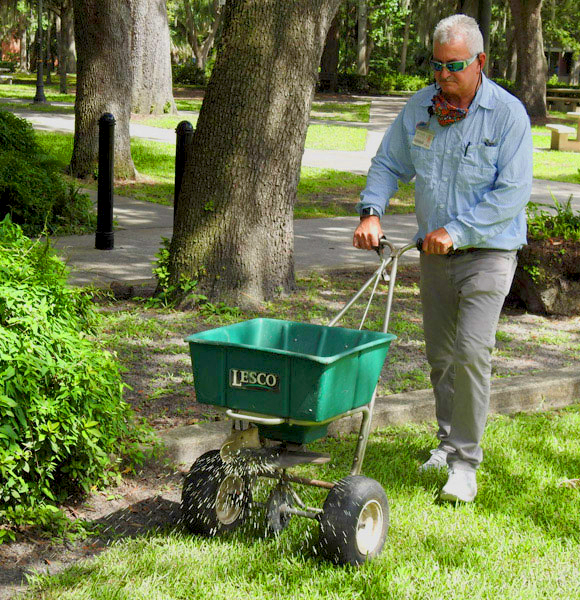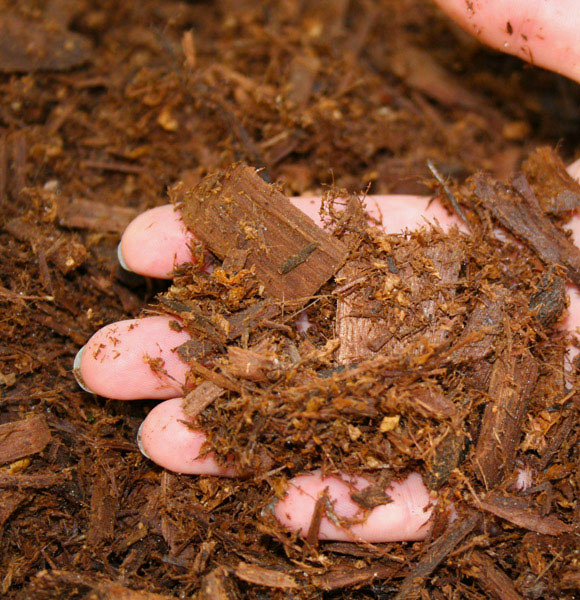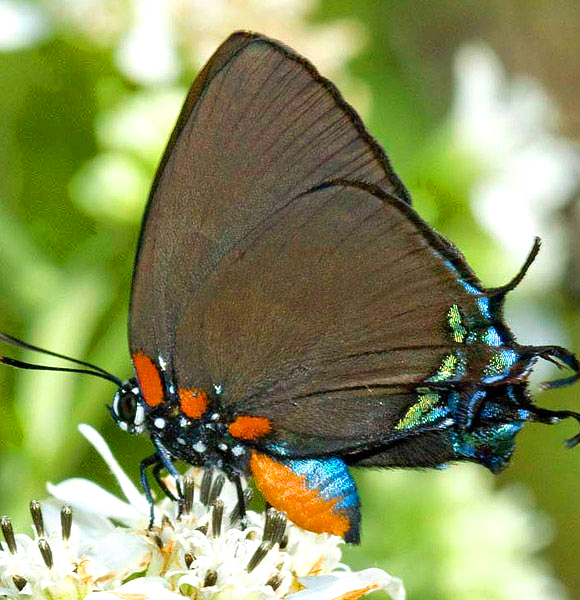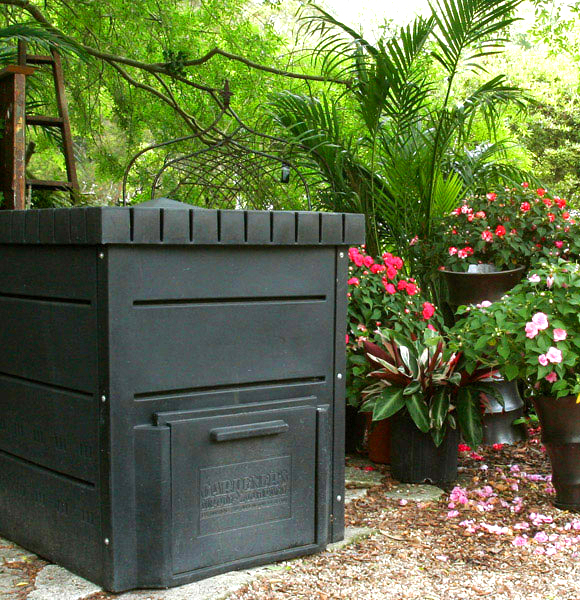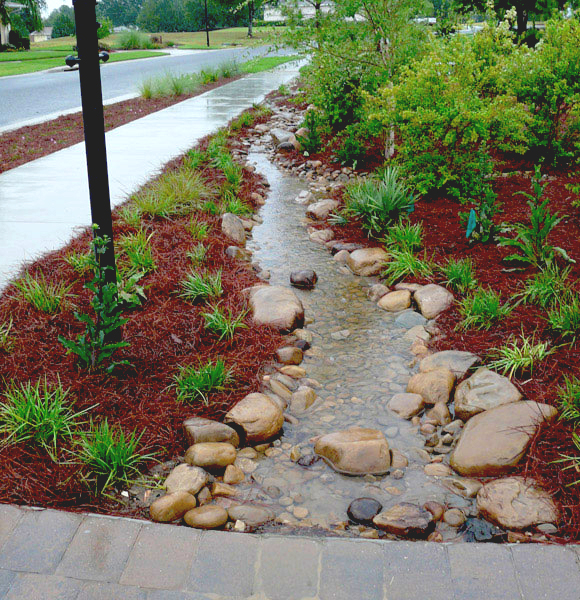For Home Landscapes
Landscape maintenance activities like mowing, pruning, and raking help ensure the health of your landscape, but also generates yard waste. Keep as much of this material onsite as possible to conserve nutrients and reduce the amount of energy required to move it from place to place. Decomposing organic matter releases nutrients back to the soil in a form that plants can easily use. Using yard waste for composting is a sustainable way of creating organic fertilizer.
Benefits:
- Much less material will need to be hauled away
- Nutrients from grass clippings and leaves are recycled and stay onsite
- Compost can provide a source of rich organic matter to add to landscape plantings
- Uncomposted leaves and pine straw can be used as mulch, reducing the need to purchase
A Florida-Friendly Community is creative in their landscape re-use. You can save money and reduce the amount of materials in the landfill by using salvaged or remanufactured materials for hardscape elements and when removing plants, try replanting or recycling them on site. To reduce waste, consider installing dwarf plant varieties that will not require a lot of pruning. Leave grass clippings and fallen leaves on site to return nutrients to the soil. Care should be taken to make sure plants and trees are pruned correctly. When possible install a community compost bin.
Benefits:
- Less landscape debris needs to be removed from the community.
- Nutrients from grass clippings and leaves will be recycled and stay onsite.
- Plants will be healthier because they are being pruned properly.
- Compost can be made, providing a source of rich organic matter to add to landscape beds.
- Uncomposted leaves and pine straw can be used as mulch, reducing the need to purchase.
As landscapes are maintained, there are grass clippings, leaves, twigs and branches that fall or are routinely pruned from the lawn, trees and shrubs. Keep as much of this material onsite to conserve nutrients and reduce the energy required to move it from place to place. Grass clippings should be left on the lawn to help recycle their nutrients. Leaves can be used as mulch in gardens or added to a compost pile. Small twigs and limbs where possible can be stashed onsite to allow their nutrients to be utilized by the surrounding plants. Care should be taken to make sure plants and trees are pruned correctly.
Benefits:
- Much less materials will need to be removed from the site
- Nutrients from grass clippings and leaves will be recycled and stay onsite
- Plants will be healthier because they are being pruned properly
- Where allowed, compost can be made, providing a source of rich organic matter to add to landscape plantings
- Less mulch will be needed if leaves are used onsite


